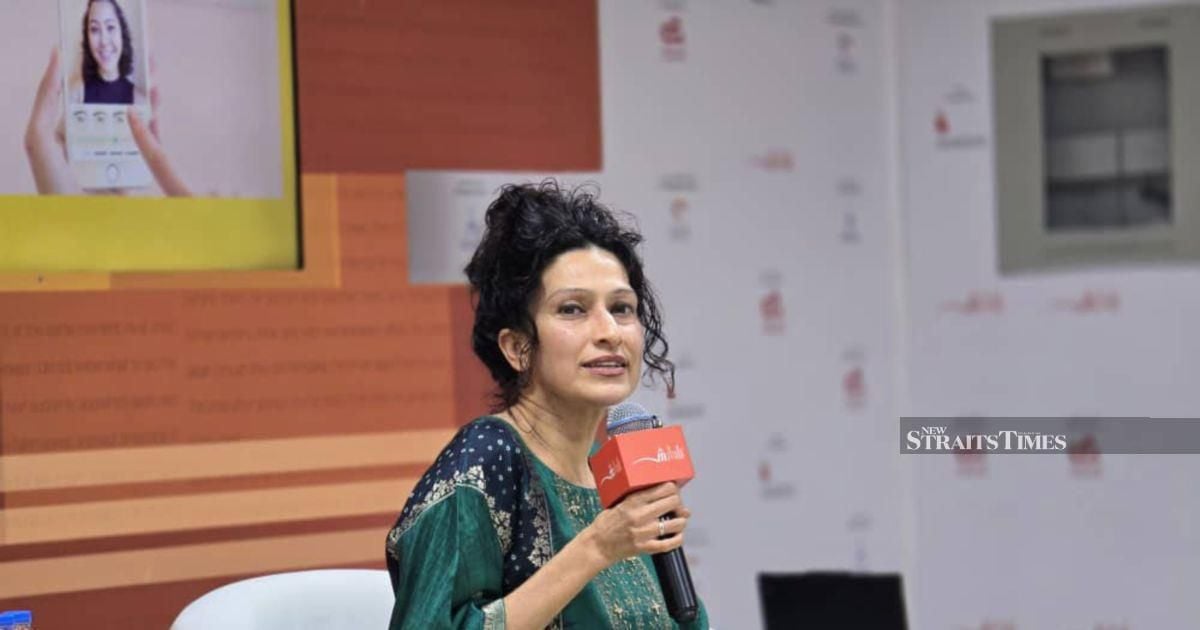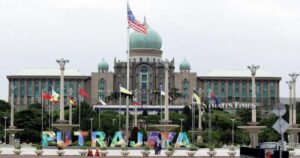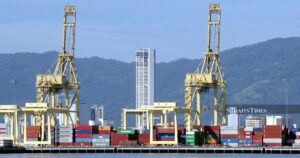SHARJAH: Global South countries must “decolonise their mindset” and stop assuming that foreign ideas or technologies are inherently superior, says author and digital anthropologist Payal Arora.
Arora, a Professor of Inclusive AI Cultures at Utrecht University in the Netherlands, said many in the Global South still suffer from a “colonial hangover”, often undervaluing local talent and innovation in the process.
“Foreign is still seen as better,” she said, referring to the West. “If leaders don’t change, they’ll miss a huge opportunity right at their doorstep.”
Speaking to the New Straits Times at the Sharjah International Book Fair (SIBF), Arora – author of From Pessimism to Promise – said the Global South has moved far beyond the “outdated image” held by many in the West.
“We are not the Global South of a decade ago,” she said. “Look at Saudi Arabia – it has become unrecognisable in just five years. Yet many in Silicon Valley still act as if time stood still, thinking the rest of the world must become more American. Most of the world doesn’t want to be America; many aspire to be a Singapore.”
Her book explores what she calls the “West and the rest divide”, contrasting the West’s pessimistic attitude towards artificial intelligence (AI) with the more positive and hopeful approach in the Global South.
In the West, she said, AI is often viewed as a threat to jobs – citing the 2023 Hollywood writers’ and actors’ strikes – and as feeding “algorithms of oppression”, the notion that AI systems amplify racism and sexism.
While there is some truth to this, Arora said these concerns are largely rooted in outdated and biased data sets fed into algorithms. She believes a new generation of online users – 90 per cent of whom now live outside the West – is reshaping algorithms by sheer volume, a phenomenon she calls the “algorithms of aspiration”.
In the Global South, she said, many creators see AI as a tool to enhance creativity, expand expression, and build livelihoods.
“It’s expanding not just the creative sector but the range of expression and storytelling,” she said, adding that content creators from India to Brazil are using AI tools to reach new audiences and global markets.
For Arora, this demographic and cultural shift gives the Global South a unique form of soft power that governments must recognise.
“Content is currency. If AI is only as good as its data, and the data is coming from us, then we have power. Governments shouldn’t squander that.”
She urged policymakers in the Global South to view their populations as assets to be empowered with access and knowledge, particularly in AI, so they can help tackle local challenges in areas such as food security, education, and justice.
She cited Brazil’s use of AI to manage its court backlog as an example of South-to-South learning that others could emulate.
“Applied well, AI can help us work through chronic social problems and democratise education, healthcare, and access to services – if built responsibly. Stop assuming foreign firms will lead your future; think about local actors who will empower you.”
Arora said that while there are valid concerns over the impact of AI, even in the Global South, there is a need for mindsets to evolve with technology.
“We cling to fear and mourn what we know rather than celebrate what’s yet to be,” she said. “Historically, new technologies create more jobs overall – just different ones.”
© New Straits Times Press (M) Bhd






